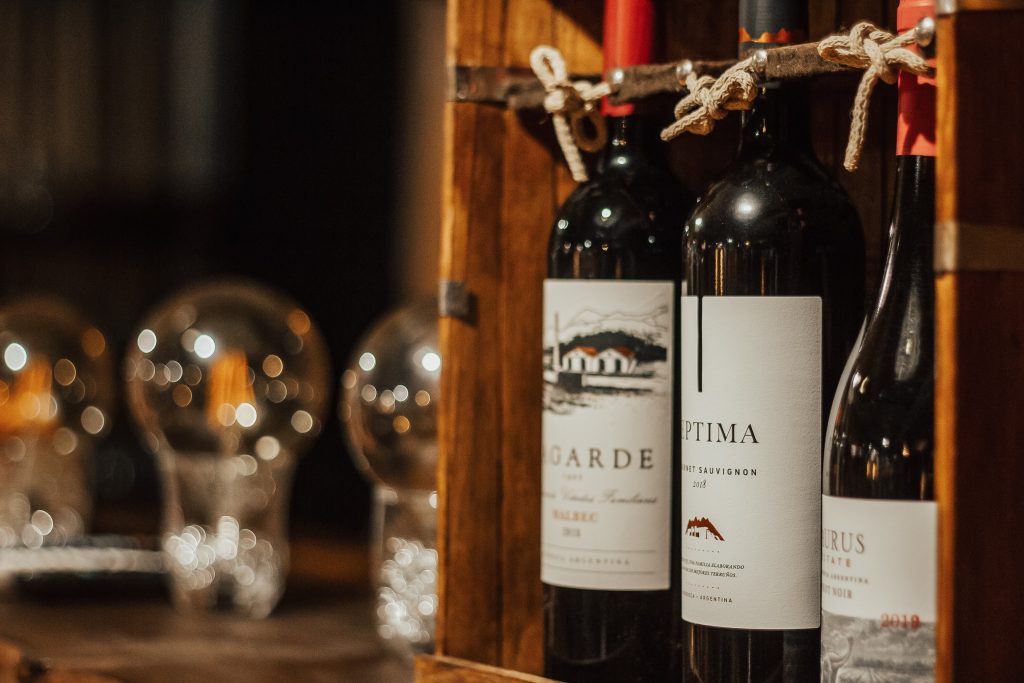The wine industry is rapidly evolving, and new technologies are emerging to help wineries manage their operations, engage customers, and boost sales.
One such technology is smart labels. They are embedded with microchips or QR codes that provide additional information about the wine, such as its origin, vintage, tasting notes, and food pairings.
So, in this article, we explore the top 10 benefits of smart alcohol labels for wine brands.
1, Elevated Customer Engagement
Labels are an effective tool for engaging customers. Simply put, labels provide customers with more information about the wine they are purchasing.
With smart alcohol labels, you can scan the QR code or tap the label with your smartphone and access detailed information about the wine. It includes tasting notes, food pairings, and winery history.
This increased engagement builds brand loyalty and encourages repeat purchases.
2. Enhanced Traceability
Smart alcohol labels also help wineries improve traceability and quality control. By embedding a unique identifier in the label, wineries can track the wine from production to distribution.
This increased transparency helps wineries detect and resolve any issues in the production process. Moreover, by tracing each bottle back to its origin, smart labels help build customer trust and assure them that the wine is genuine.
3. Refined Inventory Management
Smart labels help wineries manage their inventory more effectively. By tracking the wine from production to distribution, wineries ensure they have enough stock to meet demand. They can also avoid overstocking or understocking. This increased visibility can also help wineries optimise their supply chain and reduce costs.
With smart alcohol labels, wineries can make data-driven decisions about inventory management, streamline their operations, and ultimately reduce costs while improving customer satisfaction.
4. Expanded Brand Awareness
Smart labels can help increase brand awareness and recognition by providing an opportunity for wineries to showcase their unique story and brand identity.
Wineries differentiate themselves from their competitors by including information about the winery’s history, the winemaking process, and other details. Further, they build a loyal following of customers.
The convenience of accessing the information through a label increases the chance of customers remembering the brand and seeking it out in the future. Furthermore, the novelty of smart alcohol labels helps wineries generate buzz and interest, attracting new customers and driving sales.
5. More Effective Marketing
Smart labels can help wineries create more effective marketing campaigns by providing insights into customer behaviour and preferences.
Wineries also gain a better understanding of their target audience by analysing the data collected from label scans. Then, the brands tailor their marketing efforts accordingly. They can also use smart alcohol labels to promote special offers, events, and other marketing initiatives directly to customers.
This targeted approach can help wineries increase their return on investment and reach their desired audience more effectively. Additionally, the ability to track wine sales and customer engagement through smart labels can provide wineries with valuable feedback to refine and improve their marketing efforts over time.
6. Better Consumer Insights
Smart labels can help wineries gain insights into consumer behaviour and preferences by providing data on label scans and customer engagement. This information can be used to identify patterns and trends in customer behaviour, such as popular wine styles and tasting notes.
Wineries can use these insights to create more targeted marketing campaigns, refine their product offerings, and improve the overall customer experience. Additionally, wineries gather feedback on specific wines and make data-driven product development decisions. It ensures meeting the needs and preferences of its target audience.
Overall, smart alcohol labels provide wineries with a powerful tool for understanding and engaging with their customers.
7. Increased Sustainability
Smart labels can help wineries reduce their environmental impact by replacing traditional paper labels with digital alternatives. By eliminating paper waste, wineries can significantly reduce their carbon footprint and support sustainable practices.
Additionally, the data collected through smart labels help wineries optimise their supply chain, reduce transportation emissions, and minimise waste throughout the production process.
As consumers become increasingly concerned with sustainability, wineries prioritising environmentally responsible practices will likely see increased brand loyalty and customer satisfaction.
8. Boosts Convenience
Smart alcohol labels provide increased convenience for customers by providing quick and easy access to information about the wine they are purchasing. With a simple scan or tap of the label, customers can access tasting notes, food pairings, and winery information directly on their smartphones.
This streamlined process eliminates the need for customers to conduct their own research, improving the overall customer experience and encouraging repeat purchases.
9. Improved Product Differentiation
Smart labels provide an effective tool for wineries to differentiate their products from competitors by providing unique information about the wine, winery, and winemaking process. This information can help wineries showcase their unique story, product features, and quality standards.
Additionally, smart labels can help wineries stand out on crowded store shelves, attracting the attention of potential customers and driving sales. By leveraging the power of smart labels, wineries can create a strong and memorable brand identity that sets them apart from their competitors.
10. Enhanced Security
Finally, smart labels can help wineries improve security and prevent counterfeiting. By embedding a unique identifier in the label, wineries can verify the authenticity of the wine and prevent counterfeit products from entering the market. This increased security can help protect the winery’s reputation and ensure customers receive genuine products.
Conclusion
Smart labels have become an essential tool for wine brands, alcohol & Wine labels providing benefits such as improved customer engagement, better traceability, increased brand awareness, and more effective marketing. These labels have transformed the wine industry and are likely to become even more popular as technology continues to evolve.
Discuss your wine labelling goals further with DAL — one of the best in the industry.

